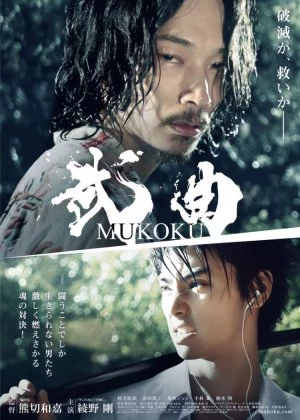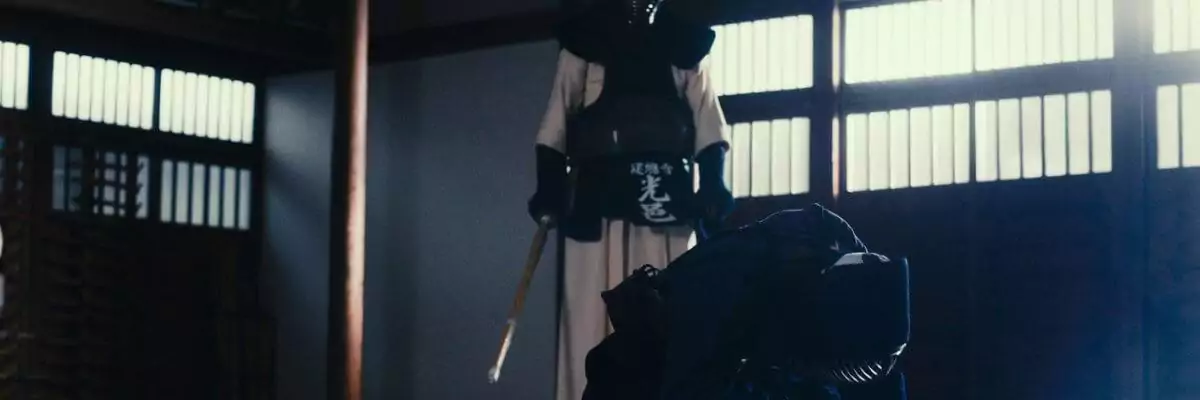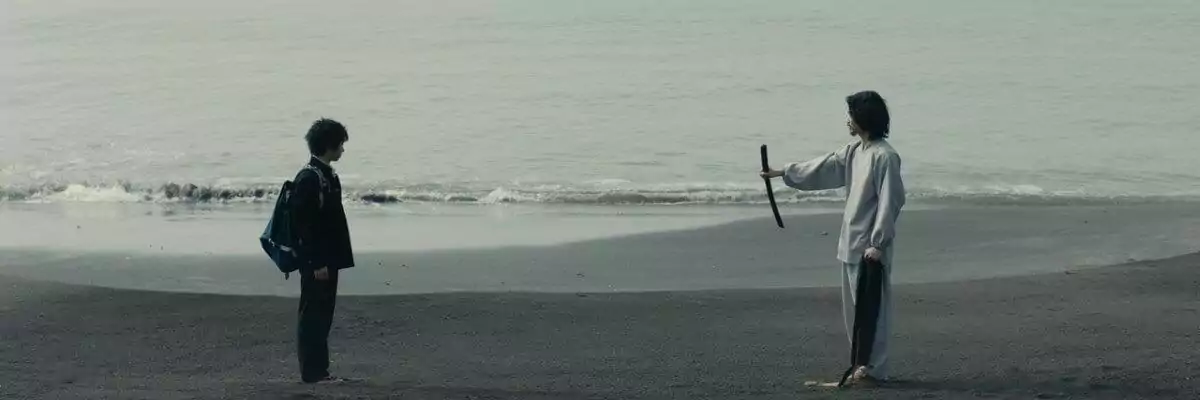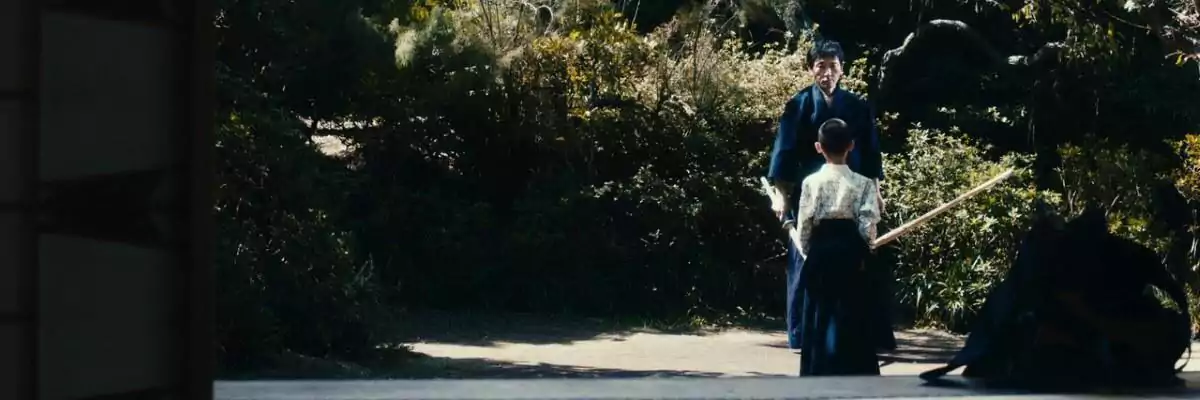Mukoku

Welcome back, Kazuyoshi Kumakiri. After a period of solid but not-quite masterpiece-grade material, it seems he's finally back on top of his game. My Man was a turning point for Kumakiri, with Mukoku he confirms his comeback to the highest level. It's a relentless drama that doesn't shy away from big emotions, but presents them in such a captivating and forcefull manner that the impact is considerable. Kumakiri fans will feel right at home here. It's not really an entry-level film, but seasoned fans have something to look forward to.

Kumakiri isn't the most subtle of directors. While Japanese dramas are mostly known for their quiet, introvert and respectful demeanor, there is a smaller niche of drama films that takes on a more edgey, sometimes even nihilistic approach (recent examples include Destruction Babies and The Light Shines Only There). While Mukoku doesn't quite take it that far, Kumakiri isn't afraid to have his characters suffer openly and act out violently if needed. It makes for a more aggressive and demanding film, but ultimately it's just as rewarding.
While mostly a film about coming to terms with past mistakes, tough fatherly love and growing up without clear goals, the film also takes on a little action on the side in the way of Kendo. The main characters are all practitioners of the Japanese sword sport/art and the fights are featured quite heavily throughout the film. It adds a genre element that's quite unexpected for a film like Mukoku, but Kumakiri handles it well and never allows these moments to get in the way of the drama. Instead it adds a different spin on some of the dramatic climaxes.
The film follows Kengo, a man who was raised to become a prime Kendo practitioner by his hard as nails father. After a tragic falling out between the two, Kengo ends up in a very bad place, having lost all purpose in life. Until one day Tooru knocks on his door. The young boy was sent by Kengo's old Kendo teacher, in the hope that he'll help Kengo to find the strength to pick up his old life again. Kengo isn't really ready to face his troubled past though and brushes him off, but Tooru is persistent, as he want to beat Kengo to prove himself worthy to his teacher.

On a visual level there is a lot to enjoy, though the film does lack stand-out moments of visual splendor. It upholds a constant level of high quallity, the only thing missing are some clear, upward spikes. Kumakiri goes with grim colors, but lets them speak by cranking up the contrast. The camera work is kind of loose and dynamic, mimicking the emotions of the characters. Kumakiri strikes a nice visual balance between the raw aggression and pent up emotions that the main protagonists are carrying with them, which serves as a solid base for the rest of the film.
The soundtrack in Mukoku is indispensible. There are quite a few scenes that felt solid and accomplished as they were, but were elevated to a higher level once the score kicked in. Kumakiri goes for a blend of classic drama music with rawer, more modern touches. It adds a little grit and anger, further strenghtening the stylistic reflection of the turbulent emotions the characters are going through. It's a great example of how you can go beyond the typical drama scores, without hurting the dramatic impact (and in fact, adding to it).
Kumakiri knows how to draw powerful performances from his actors, as is demonstrated here. Then again, he also had a pretty strong cast to work with. Go Ayano is perfect as the tortured Kengo, while Nijiro Murakami confirms all the good he showed in Destruction Babies. Veterans like Kaoru Kobayashi and Akira Emoto manage to shine in secondary parts. It's not a very big cast, but Kumakiri makes every actor count and they all do a tremendous job.

Mukoku is a powerful drama, but it isn't very subtle. If you're looking for a gentle, dreamy and/or warm Japanese drama, it's best to avoid this one altogether. Kumakiri's characters are hurting and their only release comes quite literally from lashing out at each other. This is also reflected stylistically, with both the cinematography and score adding to the expressiveness of the film. It takes some freedom away from the viewer, but you get some well-timed punches to the gut in return.
While not as grotesque or memorable as My Man, Mukoku is proof that Kumakiri is back on track. It's a stylish, relentless and moving drama, sporting excellent performances, a superb score and some high quality cinematography. It's not a film for everyone, as it is quite demanding and leading, but if you've enjoyed Kumakiri's earlier work this one should be a very easy recommend. Actually getting a hold of it might be a bit trickier, but that's on par for most Japanese releases these days.